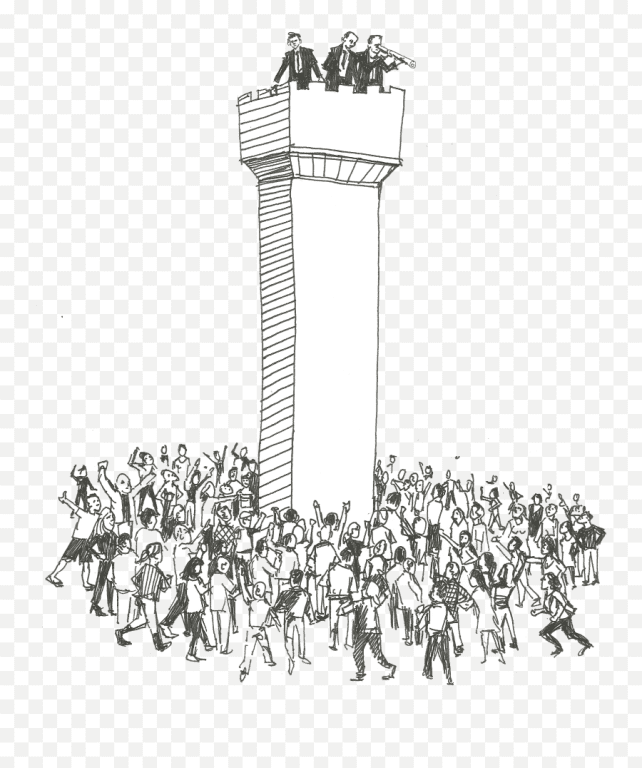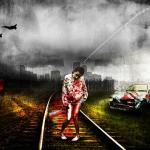
Why are critical race theory, “diversity, equity, and inclusion” requirements, cancel culture, and woke ideology in general suddenly rampant in corporate boardrooms, the government bureaucracy, and popular culture? A professor argues that what we are seeing is the invasion of academia into the public square.
Students who have imbibed this ideology–which has been around on university campuses for years–would normally go into academic careers. But there are so few jobs in higher education, they are finding work elsewhere. And bringing their academic worldview with them.
So says Russell Jacoby, a retired UCLA history professor, in the conservative-leaning Jewish on-line magazine Tablet in an article entitled The Takeover.
In 1987, Prof. Jacoby published a book entitled The Last Intellectuals: American Culture in the Age of Academe. In it, he decried the loss of “public intellectuals”; that is, thoughtful and learned thinkers who wrote for the general public. Instead the intellectual world has retreated behind the walls of academia. Here, he said, they write jargon-filled, impenetrable articles for each other. Prof. Jacoby said that while these scholars are mostly leftwing, conservatives do not need to fear them. Their interest is mostly in their careers rather than political agitation in the world outside. And nobody outside of their own little circles reads them, or can read them. Their most devoted students go into academia themselves, which, Prof. Jacoby says, is a good place for them. “Conservatives pretended to be outraged at radicals on campus, but faced with a generation of subversive students, they judged it would be better to keep them locked up in the university, which would limit the damage.”
Now, though, Prof. Jacoby says that he was wrong. Radicalism on campus is a danger. Because, due to the collapsing academic job market, the radicals have invaded the public square.
But my critics and I both missed something that might not have been obvious 30 years ago. By the late 1990s the rapid expansion of the universities came to a halt, especially in the humanities. Faculty openings slowed or stopped in many fields. Graduate enrollment cratered. In my own department in 10 years we went from accepting over a hundred students for graduate study to under 20 for a simple reason. We could not place our students. The hordes who took courses in critical pedagogy, insurgent sociology, gender studies, radical anthropology, Marxist cinema theory, and postmodernism could no longer hope for university careers.
What became of them? No single answer is possible. They joined the work force. Some became baristas, tech supporters, Amazon staffers and real estate agents. Others with intellectual ambitions found positions with the remaining newspapers and online periodicals, but most often they landed jobs as writers or researchers with liberal government agencies, foundations, or NGOs. In all these capacities they brought along the sensibilities and jargon they learned on campus.
It is the exodus from the universities that explains what is happening in the larger culture. The leftists who would have vanished as assistant professors in conferences on narratology and gender fluidity or disappeared as law professors with unreadable essays on misogynist hegemony and intersectionality have been pushed out into the larger culture. They staff the ballooning diversity and inclusion commissariats that assault us with vapid statements and inane programs couched in the language they learned in school. We are witnessing the invasion of the public square by the campus, an intrusion of academic terms and sensibilities that has leaped the ivy-covered walls aided by social media. The buzz words of the campus—diversity, inclusion, microaggression, power differential, white privilege, group safety—have become the buzz words in public life.
Do you think there is something to that? Prof. Jacoby sounds like the kind of old-school, see-through-the-nonsense scholar that I loved and tried to emulate. And you can still find them at colleges and universities, though today they tend to keep their heads down. In my academic career, there were openings in Christian schools, since that perspective was not so common.
But, as Richard Weaver has said in the title of his book Ideas Have Consequences. I think even at the time, the Marxists and the Post-Marxists, the radical feminists and the queer theorists, were causing damage. Their courses were not just graduate seminars, but part of the general education requirements that all students of all majors took. So I think Prof. Jacoby’s thesis is a little oversimplified. But it explains a lot.
Illustration: Ivory Tower by Eva Strauss via PNGitem, free download














